STD tests at FirstMed in Budapest
Getting tested for sexually transmitted diseases or infections (STDs/STIs) is a great way to protect your health and the health of others. STD lab tests are the most accurate way to determine whether or not you have such a disease or infection. At FirstMed, we offer various STD tests that will give you peace of mind about your sexual health.
A sexually transmitted disease (STD) occurs when the body is infected by bacteria, viruses, or parasites through sexual contact. Although diseases may result from an infection, it’s possible to have one without developing its related disease. Some infections have obvious signs that can alert you of their presence, while others do not produce symptoms. The only way to make sure of your sexual health is by getting an STD test.
How to get STD Test at FirstMed in Budapest?
Purchase online
Select your preferred STD test and purchase it through our webshop.
Book appointment
We will get back to you soon to schedule your appointment.
Visit
the clinic
Our clinic is located close to Széll Kálmán tér metro station.
Take
the test
Taking the sample for your STD/STI test needs only a short, 15-30 minute visit.
Receive the results
The test results will be emailed to you within 45 minutes or up to 8 working days of your appointment.
Gain confidence in your sexual health, choose from our different STD lab test packages:
STD Panel Quick Test from Blood
This antibody test is highly efficient in detecting syphilis, HIV or hepatitis.
STD Panel PCR Test
STD Panel Quick Test from Blood
FirstMed’s STD Panel Quick Test checks for the following sexually transmitted diseases from a blood sample:
- Syphilis
- HIV
- Hepatitis B (HBV / HBsAg (Hepatitis B virus surface antigen))
- Hepatitis C (anti-HCV)
This rapid antibody blood test effectively screens for these STDs because it is highly sensitive and very fast.
The best is to have an antibody test the earliest 2-3 weeks after potential exposure when it can effectively detect HIV, and get tested again 2-3 weeks later, as the window period of syphilis, hepatitis B, and C is 4-5 weeks after infection.
STD quick blood testing procedure:
- We take a blood sample from you at a 15-minute visit.
- Our lab performs the evaluation.
- You may get the preliminary lab results electronically within 45 minutes.
- In case the result is positive, a confirmatory evaluation is necessary, which usually takes up to 5 working days turnaround.
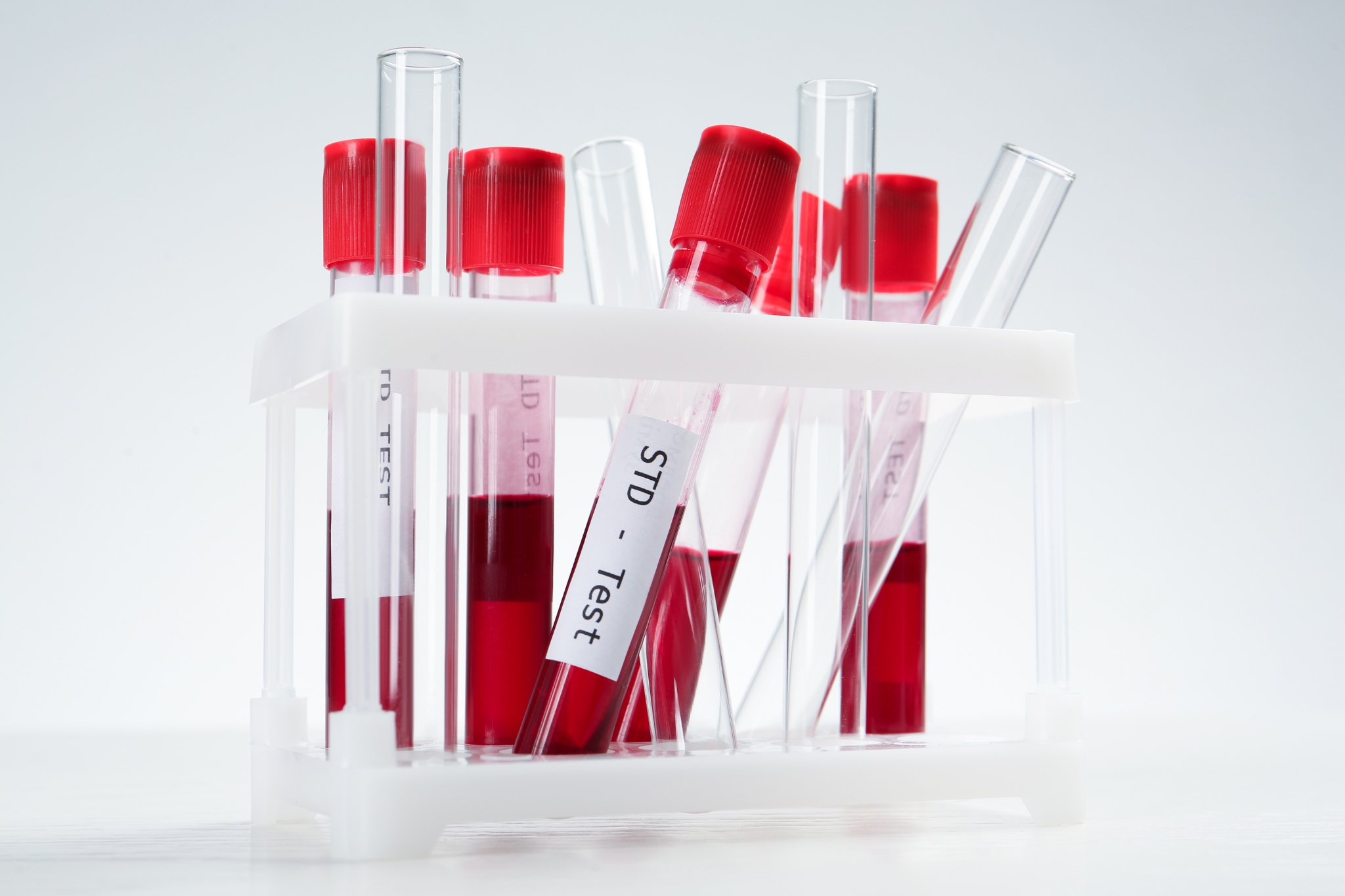
STD Panel PCR Test
The STD Panel PCR Test can reveal the following infections from the relevant body fluid specimen:
- Gonorrhea
- Chlamydia
- Genital herpes
- HPV
- Mycoplasma
- Ureaplasma
We recommend getting a PCR test for these STDs 2 weeks after potential infection or earlier if you have any symptoms.
The STD PCR testing procedure:
STD Panel PCR Testing is conducted on the relevant non-blood sample: urine (preferred for men) or vaginal swabs (preferred for women), urethral swabs, endocervical swabs, or rectal and oropharyngeal swabs.
- We take the sample on a short, 15-minute visit.
- Our lab will proceed with the evaluation.
- You get the test results electronically within eight working days of your visit.
In some cases, a culture may be necessary to determine which antibiotics the specific bacteria is sensitive to. This is not included in the package and would require an extra cost.
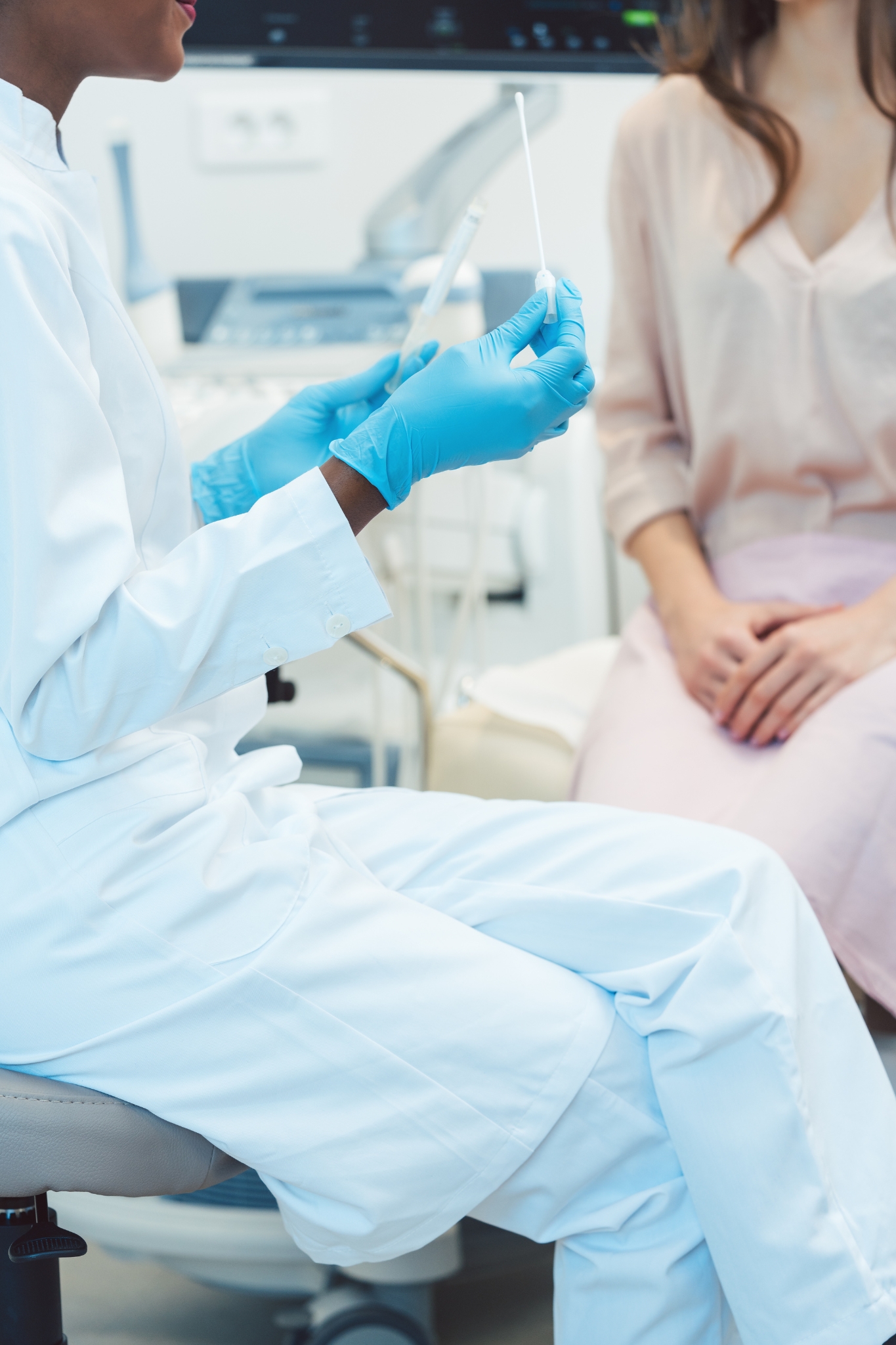
Frequently Asked Questions
How soon should I get STD test after a potential exposure?
If you have been potentially exposed to an STD/STI, you may think you need to be tested right away. But it can take time for the immune system to react to an infection. Some STDs/STIs do not show up immediately after infection.
This is known as the ‘window period’—if you get tested too soon, there may not be enough time for the test to detect the presence of the STD/STI, and this could lead to a false negative result.
Consider the certain incubation times or window periods when making an appointment for your STD test.
How soon can antibody blood tests detect STDs?
The below window periods show the average length of time for a disease to show up on a test:
- Syphilis: 4-6 weeks
- HIV: 2-3 weeks
- Hepatitis B (HBV / HBsAg (Hepatitis B virus surface antigen)): 2‑10 weeks
- Hepatitis C (anti-HCV): 8-12 weeks.
How soon can STD PCR tests detect an infection?
We recommend having a PCR test 2 weeks after potential infection or earlier if you have any symptoms. The average incubation periods for each infection are:
- Genital herpes: 4 days (may range between 2-12 weeks)
- Chlamydia and gonorrhea: 2 weeks
- Mycoplasma: 1-4 weeks
- Ureaplasma: 2-3 weeks
- HPV: 4-5 weeks (ranges from 1 to 20 months)
A rapid antibody blood test may detect HIV between 18 to 90 days after exposure. The best is to have an antibody test the earliest 2-3 weeks after potential exposure and again 2-3 weeks later, as the window period of syphilis, hepatitis B and C is 4-5 weeks after infection.
There is always a chance of a false negative result, which may originate from a more extended incubation period or a possible sampling error. If your first STD test result is negative, we suggest getting tested again later, as the window period is different for each disease.
How to prepare for the STD test?
These guidelines will help you get an accurate result if you’re testing for a sexually transmitted disease or infection:
- Sexual intercourse should be avoided in the three days before the screening.
- Women should consider their monthly cycle before making an appointment, as STD sampling cannot be done during menstruation.
- If you prefer an appointment in the afternoon hours, you may eat or drink before getting tested for HIV, syphilis, or other STDs.
- Men should not urinate for at least 1,5-2 hours before getting an STD PCR test.
- Do not apply ointments, medicines, or other substances (e.g. fungicides) to the genitals from the day before your appointment, and inform us if you take any antibiotics. These can alter the results of certain STD tests.
How the STD Tests carried out at FirstMed?
FirstMed’s STD Tests are carried out by taking a sample and processing it in the lab. It extends only to carrying out the testing. The testing process does not cover the specification of the proper test, the indication of an investigation, the establishment of a diagnosis, or the interpretation of the results. Please make an appointment for a doctor’s consultation if you have any questions about the results or if you have symptoms.
Should I see a doctor before taking an STD test?
You can have an STD test without a doctor’s consultation. However, it is suggested to see a doctor if you have questions or concerns. Talk with one of our English-speaking specialists in person or on a Telemedicine consultation.
The doctor can inform you about the following:
- the symptoms, if you have any,
- when should you take an STD test,
- which test is suitable for your needs,
- how to prepare for the STD test,
- what treatment you can get if your test becomes positive,
- any other questions you might have in connection with the tests.
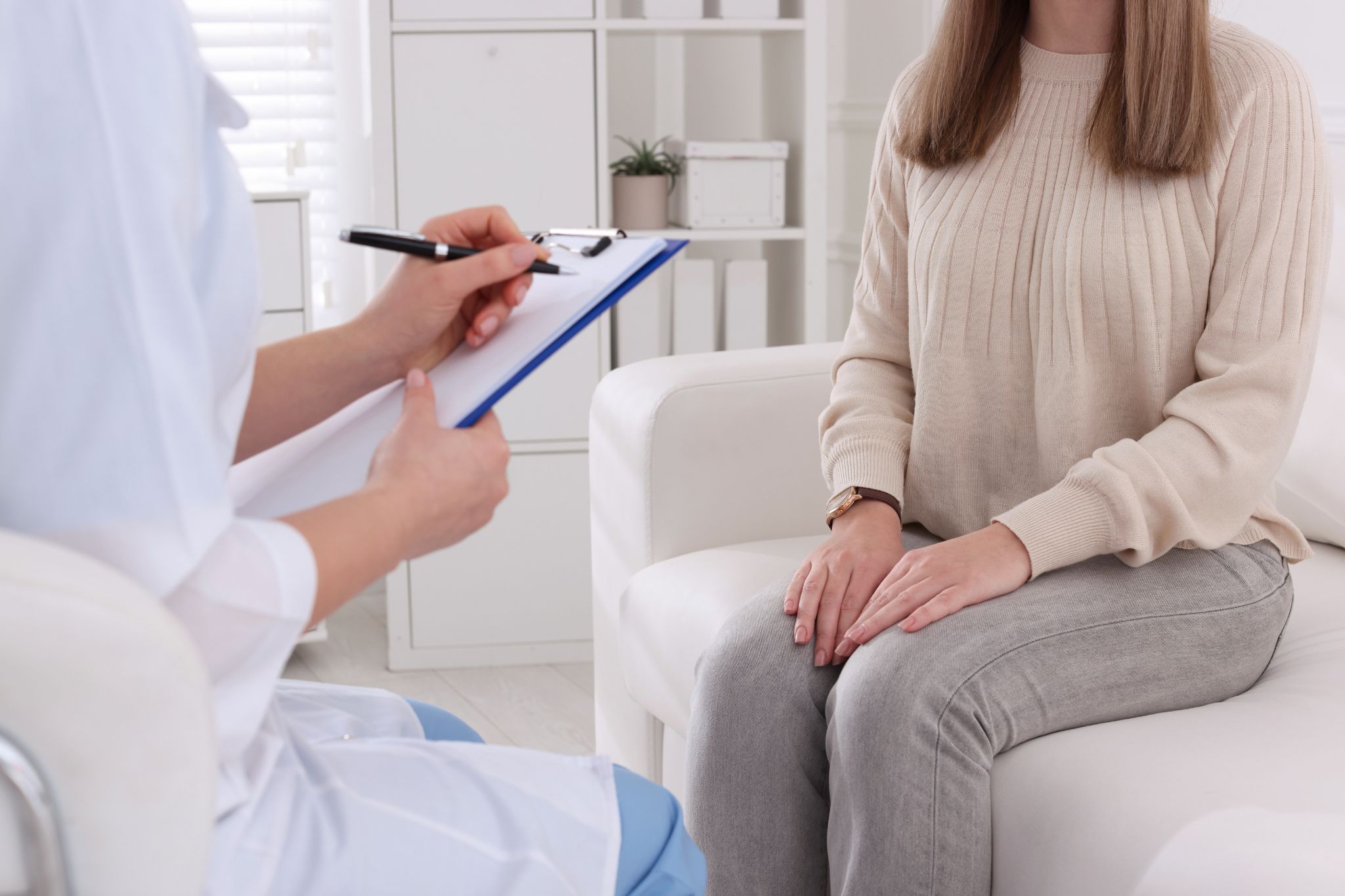
How accurate are the test results?
These testing methods are accurate and reliable, however, it may occur that you get a false negative result. This means you have the disease but your test results come back saying that you don’t.
A range of factors could affect the test accuracy, including the window period during which the body must produce enough antibodies to get an accurate test result.
If your test becomes negative, but you still experience symptoms, visit a doctor – there may be another disease that causes the symptoms.
In rare cases, a false positive result may occur when a test comes back as though you have an STD, even though you actually don’t. It could be due to various reasons, including the presence of antibodies that were produced by another infection or vaccination.
In some circumstances, and to get complete certainty, it may be necessary to repeat the screening.
What shall I do if my STD Test result is positive?
If your test becomes positive, inform your partner(s) and consult a doctor!
Discuss the possible treatment and next steps. The specialist may suggest a control visit, prescribe medication, or refer you to further examinations.
Many STIs can be cured with antibiotics. Some infections, such as HIV, have no cure, but they can be treated.
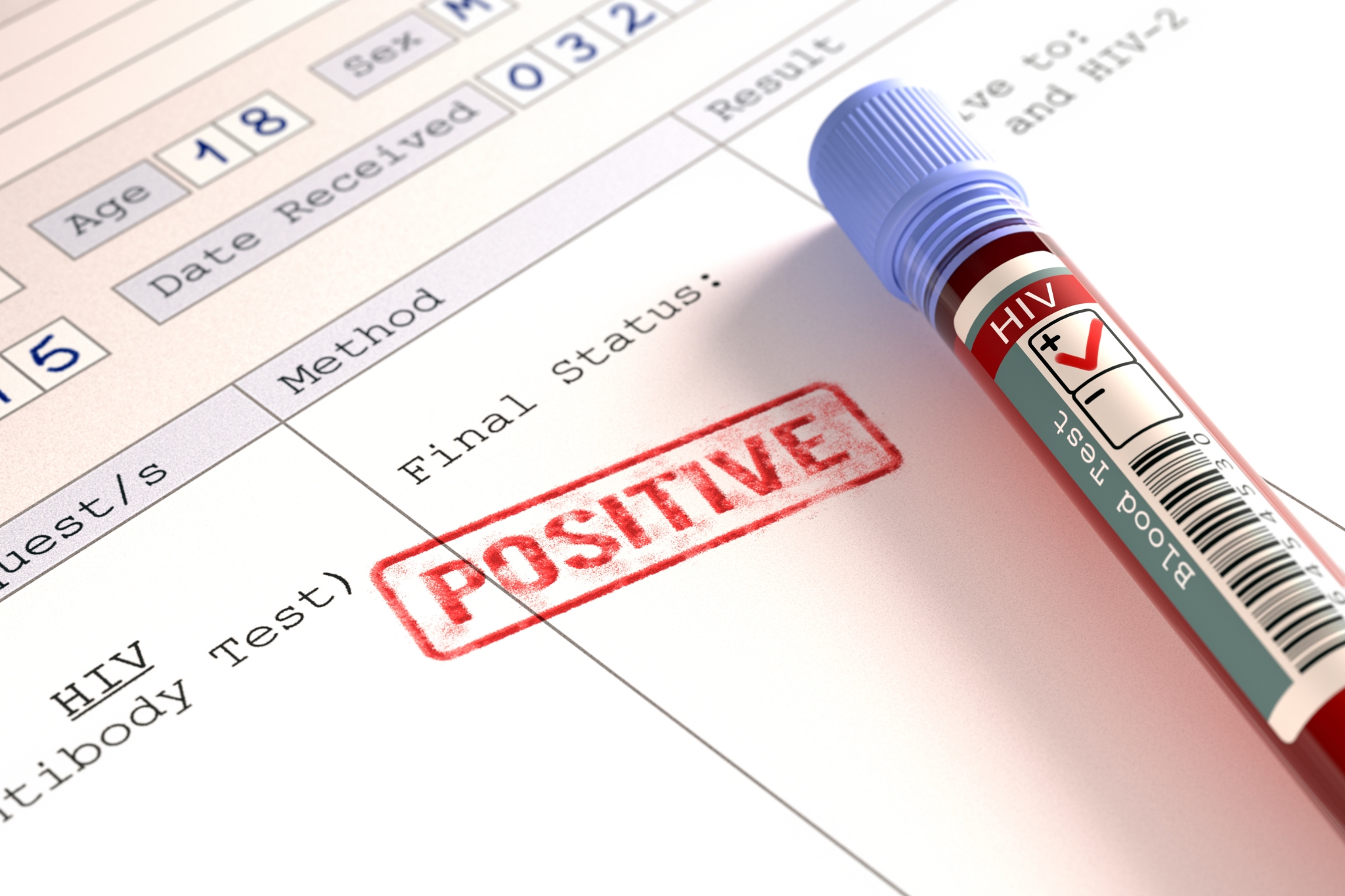
What are the most common STD or STI symptoms?
If you think that you may have sexually transmitted disease or infection here are some common signs to look for. If you have any symptoms, visit a doctor. You might need to get tested and start treatment right away.
- Sores, warts, or bumps on and/or near the genitals, thighs, or anus;
- Local sores, warts, or bumps (in the mouth or throat);
- Unusual discharge from the vagina or penis;
- Itching, pain, irritation, and/or swelling in or around the genitals;
- Flu-like symptoms like fever, aches, swelling, and fatigue.
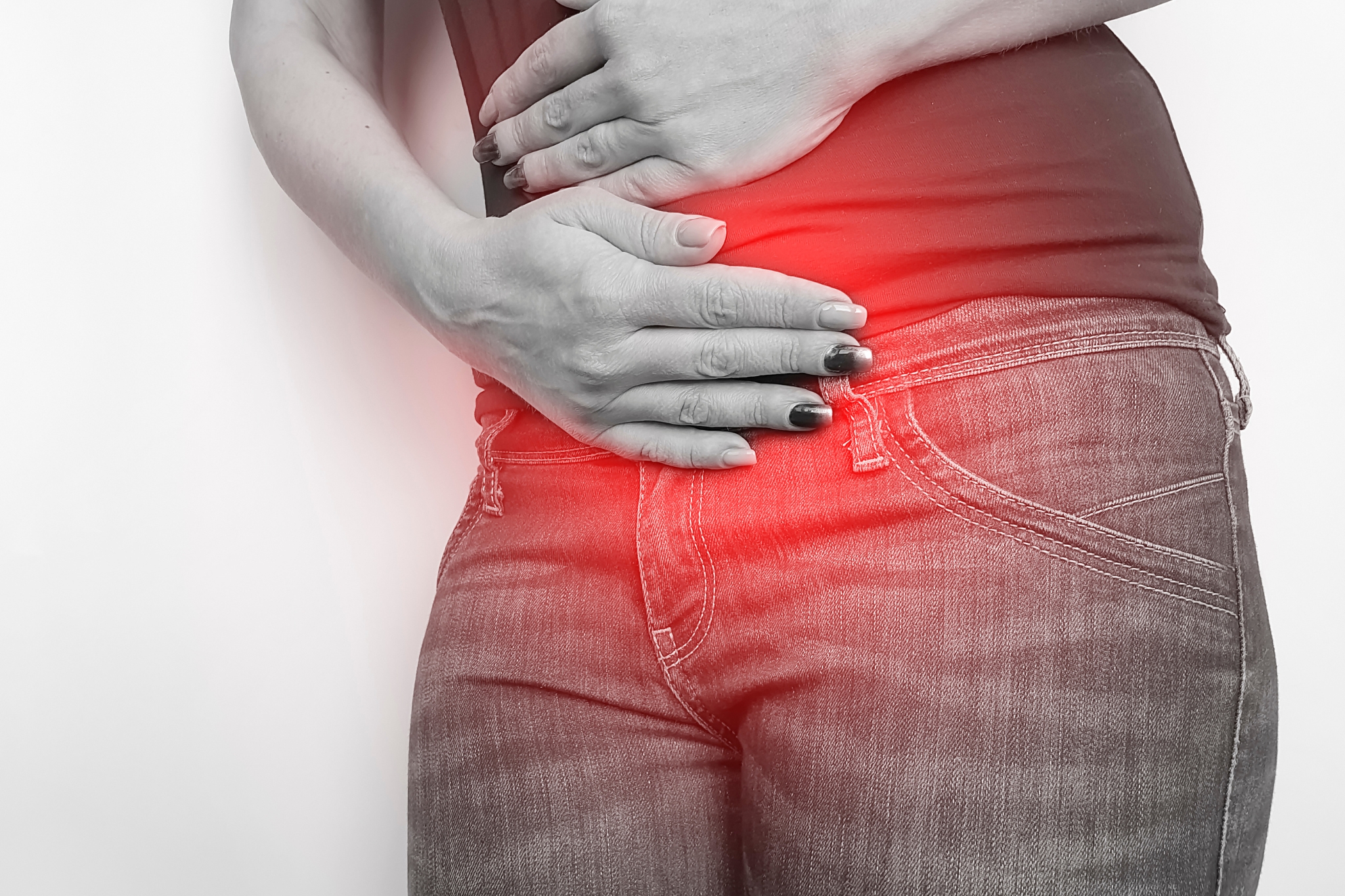
Learn more from our guide about the different STDs, their symptoms, when to get tested for STDs/STIs, and how to protect yourself from being infected. Being informed about them is the best way to protect yourself and others.
Why get tested at FirstMed?
FirstMed will help you navigate the sometimes difficult or embarrassing process of STD testing. With our range of options, we can guarantee a smooth examination procedure for all situations.
- Highly experienced and qualified staff – fluent in English and Hungarian.
- The STD testing process is simple, smooth and confidential.
- STD testing needs only a short, 15-30 minute visit.
- You can get your results in English or Hungarian (or both languages, as you prefer).
- Discuss the next steps or possible treatment with English-speaking doctors. Make an appointment for a consultation if you have any questions or in case your test result is positive. (Please note that the STD test doesn't include a doctor's consultation, but we are happy to book it for you separately.)
- Central location in Budapest, near Széll Kálmán tér metro station.
If you think you’ve been exposed, it’s better to know than to worry. STDs can be scary, but you can overcome them with proper attention and care. That’s why it is important to get tested regularly. Have your partner get tested at the same time so you can avoid passing infections back and forth (the “ping-pong effect).
Request STD Testing
Fill in the form below, and our phone nurses will contact you. Make sure to purchase the STD Test online in advance through our webshop.
STD/STI Testing Request Form
After submitting the form, you will get a confirmation by email, and a “Thank you” page will appear.
If you do not receive the confirmation, please check your spam folder, and whether you completed the form fully.




